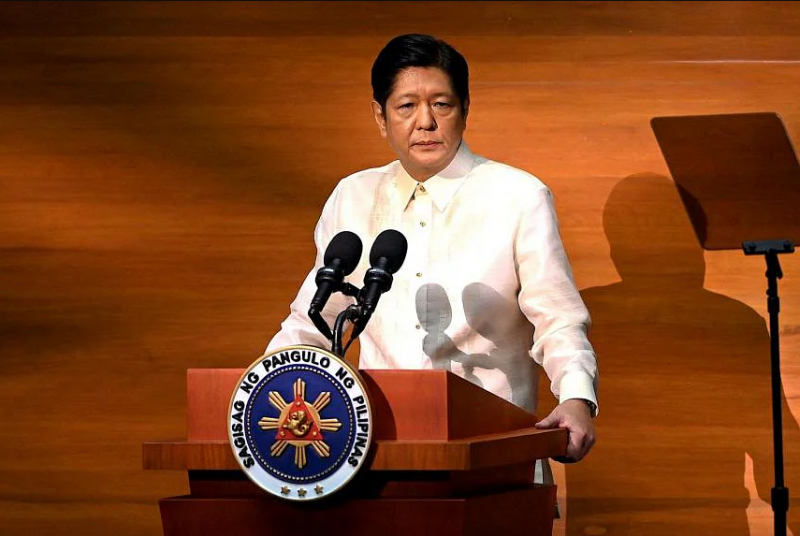
Manila: In an effort to counter the recent rise in text scams, President Ferdinand Marcos Jr. signed a new law on Monday requiring people in the Philippines to register ownership of their SIM cards.
The SIM Card Registration Act is the first law that Mr. Marcos has signed as the President of the nation. The previous iteration of the bill was approved by Congress while Rodrigo Duterte was president.
However, a senator-added clause that required people to use their real names and contact information when creating social media accounts was the reason they vetoed it in April 2022. This clause was omitted from the most recent Act.
The law was passed nearly a month after the Senate investigated widespread text phishing scams that sought to obtain mobile users' personal information for fraudulent transactions.
Some senators also claimed to have received texts with their first names in them. Senators were informed in September by the Cybercrime Investigation and Coordination Center that six syndicates were allegedly responsible for these frauds.
With the signing of the act, Mr. Marcos declared, "We will finally accomplish what has been long overdue: an effective way to regulate the issuance of SIM cards to prevent the spread of spam text messages and scams."
Also Read: China improves transportation connections with Russia's abundantly resourced Far East
He claimed that the SIM Card Registration Act will equip law enforcement with the resources they need to try and prevent crimes committed using SIM cards.
Users of SIM cards were assured that their information would be kept private until they gave permission to issue it. However, telecom companies are now required to provide personal information of SIM card users in response to a court order or summons.
Law enforcement agencies investigating allegations of crimes committed while using a mobile device may send a formal request to telecom companies to disclose SIM card owners' information.
As per the new act, before the SIM card is activated, people will have to register with the telecom companies and show a valid identity document.
They have to provide their full name, date of birth, gender and home address. When using a SIM card, the minor must use the information of his or her parent or guardian, and must allow registration. Additionally, tourists have to register their SIM cards.
Meanwhile, existing SIM card holders will have 180 days to register their personal information with their telecom companies. If they do not comply, their accounts will be deactivated.
The National Telecommunications Commission has the responsibility of working with telecommunications and other relevant government organizations, such as the National Privacy Commission, to develop guidelines for the registration process.
Those who are caught using false information to register their SIM cards face prison sentences ranging from six months to two years. Fines of up to 300,000 pesos (S$7,291) may also be imposed.
Also Read: US Department of Defense banned DJI and BGI Genomicsin because of their ties with Chinese military
Those who engage in deceiving or impersonating another SIM card user to deceive others face a prison term of at least six years and/or a fine of 200,000 pesos.
Telecom companies that refuse or refuse to register the SIM without any good reason will be fined 100,000 to 1 million pesos, depending on how often the act occurs.
Telecom companies, their representatives and employees who disclose the information of SIM card users without the users' consent or proper court authorization can be fined from 500,000 to 4 million pesos.
However, some legislators and industry professionals expressed privacy concerns regarding the SIM Card Registration Act.
Arlene Bros, a representative of pro-rights progressive women's organization Gabriella, predicts that the phishing scams will continue.
Cases related to cyber attacks and data breaches are still pending. What happens once telco companies have access to consumer data? According to the expert, secure implementation of data privacy measures should be the first priority of the government.
Numeriano Hernandez Jr., an attorney and expert in data privacy, told Businessworld on September 25 that not all Philippine government agencies have robust cybersecurity procedures in place. He warned that some people may lose their faith and as a result they will lose faith in the government.